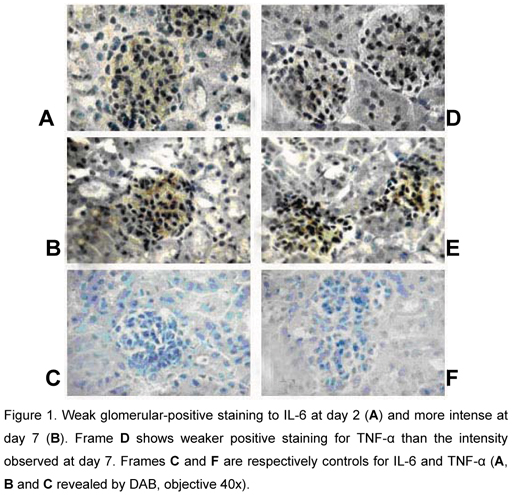Leptospirosis is a public health problem worldwide and its etiology remains unclear. Its pathogenesis involves a complex interaction between host and infecting microorganism. The inflammatory reaction that controls the infection process also underscores many pathophysiological events occurring in leptospirosis. We investigated the presence of tumor necrosis factor-α (TNF-α) and interleukin-6 (IL-6) in renal tissues by immunohistochemical and histopathological examination in animals experimentally inoculated with Leptospira serovar Canicola. All the tests were carried out 2, 7, 14, 21 or 28 days after inoculation. Although TNF-α and IL-6 had been detected in tissues throughout the observation period, these cytokines appeared more intensely during the initial phase of infection. Therefore, both TNF-α and IL-6 were associated with the immunopathogenesis of leptospirosis. This profile suggests a high immunocellular response throughout the early infection stages followed by subsequent humoral response.
leptospirosis; immunohistochemistry; IL-6; TNF-α; mice

